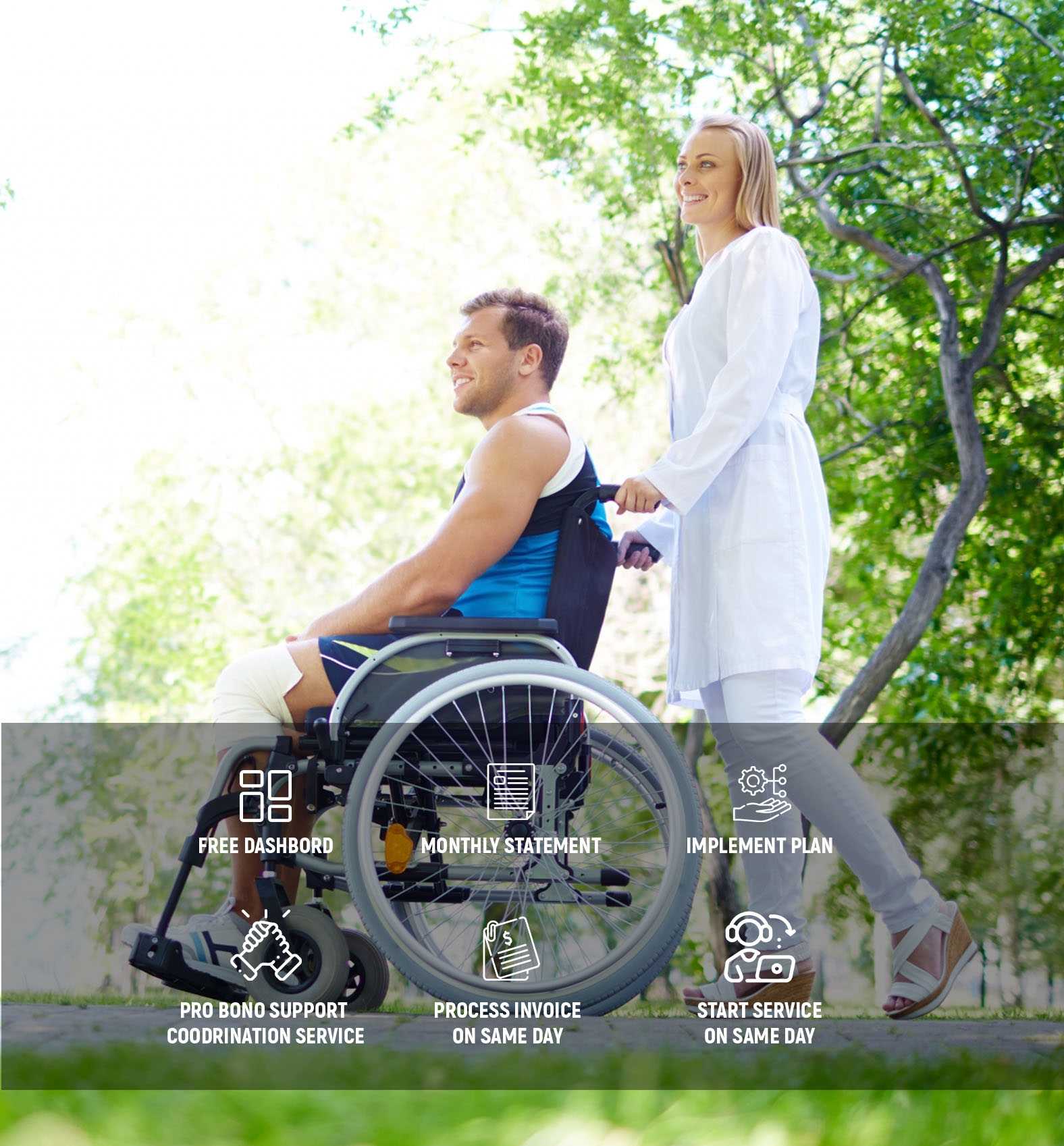What types of services and supports can the NDIS fund?

Funding options for a wide variety of supports and services are available through the NDIS. They may include funding for: living arrangements, social participation, education, employment, training, health and well-being, independence, and transport.
Funding is provided when a support or service is deemed ‘reasonable and necessary, which means that a support or service:
- Will be effective and suitable for you
- Is related to your permanent disability
- Will consider other support factors you are receiving from your support network, family, community, or other government services.
- Is considered value for money
- Does not cover day to day costs that are not associated with your disability
What other services is the government responsible for?
There are a wide variety of services that the government is responsible for providing Australians with. It can be confusing trying to understand what services the NDIS will fund and what is the responsibility of another government organisation. You can always talk to your Early Childhood Partner, your Local Area Coordinator or contact the NDIA directly if you are unsure what the NDIS will fund.
The following information will explain what the NDIS funds and what is funded by the government outside of the NDIS.

Education

NIDIS funding for education
- Assistance at school to help participants in their day to day living activities such as eating or going to the toilet
- Transportation services and transportation equipment
- Support services that are required to be delivered during school hours but are not related to education
- Training and information given to school staff about the needs of a student with a disability
Education system will fund

Health
Health Support that the NDIS will fund

The NDIS is designed to cater to people with a range of disabilities by providing specialised health supports to assist participants’ day-to-day lives.
Funding is often given for:
- Assistive technology that directly relates to a participants disability, such as hearing aids, wheelchairs, customised beds.
- Supports to assist participants with a psychosocial disability
- Modifications to a participant’s home to enable greater independence
- Health and therapy professionals to assist with a participants disability, such as speech, physio and occupational therapists.
- Prosthetics and artificial limb equipment
- Non-acute care that is a severe medical condition that requires immediate hospitalisation and treatment.
The NDIS is often evolving, and the types of health support that it funds can be updated throughout the years. For more information and to stay up to date with any changes, please visit NDIS.gov.au/health-supports
Health support that the public health system will fund
- General and specialised medical services such as medication, dental, hospital care, rehabilitation, and surgery
- Clinical care for serious mental health disorders
- Geriatric and palliative care and services designed for psychogeriatric conditions
- Care for sub-acute, post-acute treatment including rehabilitation and wound healing
- Assisting individuals return to their places of residence after hospitalisation
- Assessment and evaluations or mental health, disability, and general health conditions
- Hearing and vision treatment that may not fall under a person’s disability

Employment
Employment Services the NDIS will fund

Employment Services that Employers and Employment Service Providers will fund
- Transport and accessibility for workplace activities such as meetings
- Supports that are directly related to the workplace such as custom decks, accessible equipment, and building access modifications
- Support for participants to find and maintain employment provided by Australian government employment services like Job active or Disability Employment Services

Family Support

Family Support the NDIS Funds
- Support for children, teenagers, and adults with a disability to increase their out-of-home care capabilities, such as building modifications, behavioural support, equipment, and training to become more independent.
- Supports required due to the impact of a parent or child’s disability.
- Training for parents and carers who are the primary carer of someone with a disability or who has a disability themselves.
Family support funded by government and community services
- General information and training concerning the well-being and safety of children
- Services that aim to increase parenting skills and family relationships through counselling
- Child protection issues and responses
- Support to establish and continue out-of-home care for adults, children, and teenagers, which may include payments and allowances
Payments that individuals and families may be eligible for, such as childcare rebates or family tax benefits.

FAQ’s
How does the NDIS support families and carers?
Families and carers of individuals with a permanent and significant disability represent some of the most influential people in their lives. And while the NDIS is catered to provide support for the individual, their families and carers can significantly benefit from NDIS funded services and supports.
There are government-funded initiatives available to help support carers. A participant’s NDIS fund can be put towards initiatives such as Respite. Find out more.
Also, you can ask your local area coordinator (LAC) or contact the NDIA directly to find out more information about initiatives that are designed specifically for carers. Programs may include counselling or carer support groups in your local community.
Is the Disability Support Pension and NDIS linked?
The Disability Support Pension (DSP) and the NDIS are not linked together. This means that if you are receiving funding through the NDIS, it will not conflict with any income support you are currently receiving, such as a carer allowance or the DSP. This also means that DSP recipients aren’t automatically qualified to receive NDIS funding. You will need to apply to the NDIS and check your eligibility separately.
If I am currently receiving compensation payments, will this affect eligibility for the NDIS?
If you are receiving compensation for a personal injury, it will not affect your eligibility to receive support from the NDIS.
Please note that the NDIA may seek to recover support funds if you are an NDIS participant and have received support funding for an injury that you have previously or are currently receiving a compensation payment. Also, the NDIA may consider the compensation payments you receive when assessing your NDIS plan funding.
Visit ndis.gov.au/compensation for more information.

